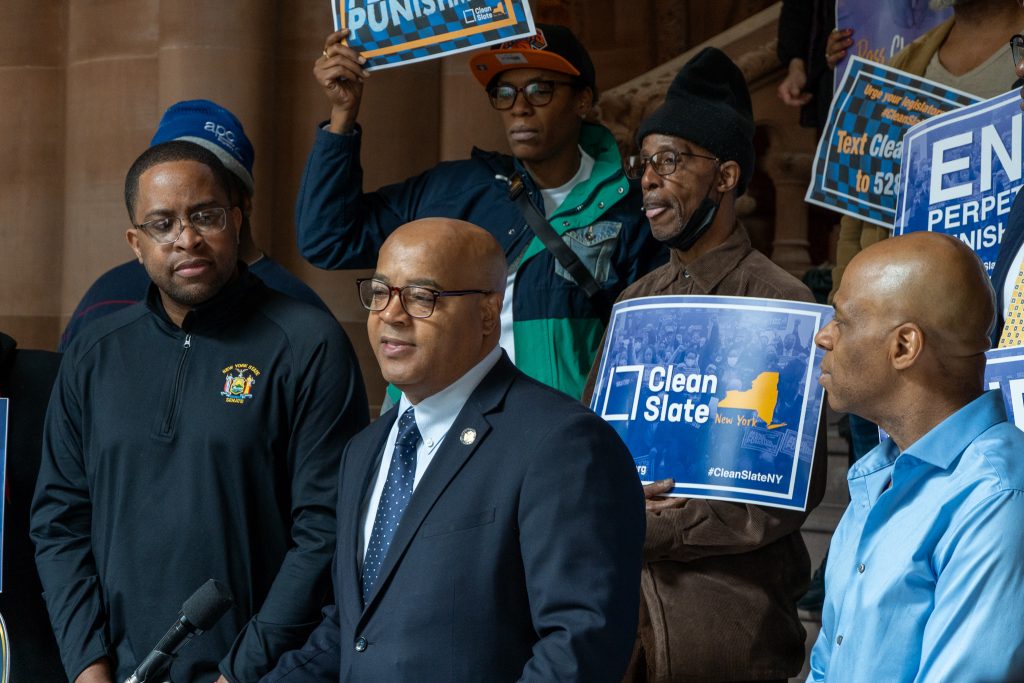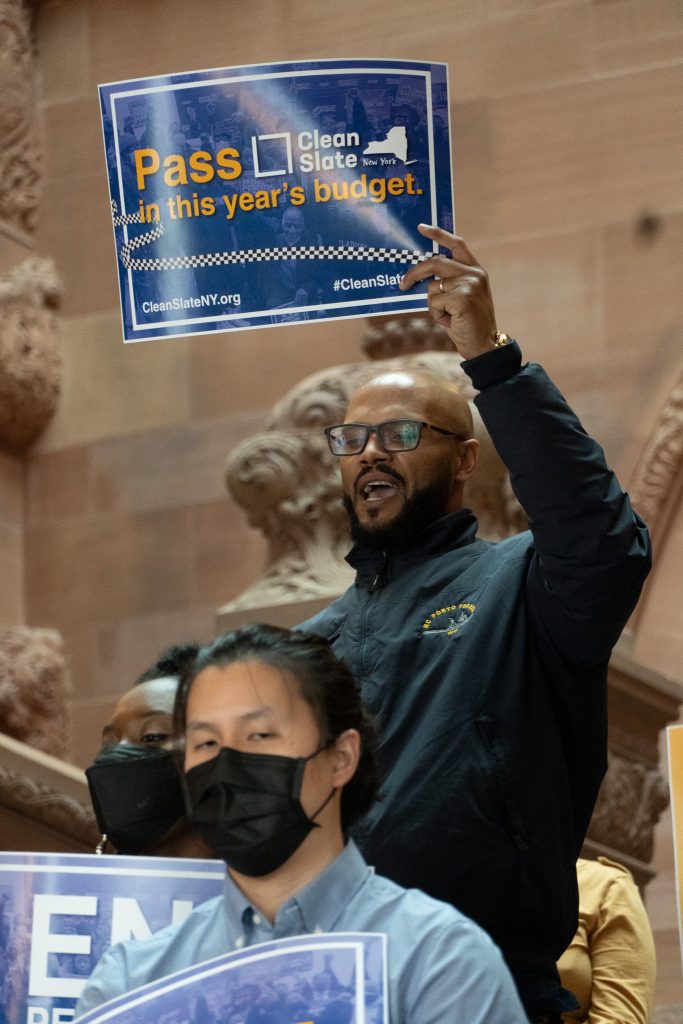
An intense debate around bail reform has thrown a wrench into the budget negotiation process as New York prepares to finalize its $216 billion state budget for fiscal year 2023.
New York state passed a bail reform law in 2019 in an effort to ensure that race or access to money had no influence on determining whether a defendant would be locked up before facing trial. The law went into effect in January 2020 and eliminated monetized bail and pretrial detention for nearly all misdemeanor and nonviolent felony cases.
Opponents of the reforms have blamed the law for the current increase in crime rates, but supporters say that data doesn’t back up that narrative and the state needs to do more to address root causes of crime.
Republicans like Senate Minority Leader Rob Ortt and gubernatorial candidate Lee Zeldin want to reverse some recent reforms such as cashless bail and certain types of parole like Elder Parole and Fair and Timely Parole. They have also called for the passage of legislation (S.8176/ A.8682), which would impose “mandatory life-without-parole prison sentences for the first or second degree murder of police officers or other New York first responders.” That bill is sponsored by Sen. Patrick Gallivan and Assemblyman Mike Lawler.
Some Democrats, including New York City Mayor Eric Adams, have also blamed cashless bail for increasing crime rates. Democrats representing upstate districts have voiced similar concerns in recent years. A red wave on Long Island last November has been called a referendum on Albany’s criminal justice reforms of recent years.
The issue of bail reform is causing friction between moderate and progressive Democrats.
Upon taking office in January, Mayor Adams released an anti-crime plan that called on legislators in Albany to change or repeal the bail reform law. Specifically, Adams wants to overhaul the law to give judges the discretion to detain repeat offenders before trial based on the concept of “dangerousness.”
While Democratic leadership in the state Legislature hasn’t shown any signs of caving to the pressure of opponents of bail reform, Gov. Kathy Hochul has proposed changes to the law that have outraged bail reform supporters, even though she admits increasing crime rates aren’t connected to bail reform.
Hochul’s recent op-ed in the Daily News states “blaming bail reform for the increase in violence that cities across America are facing isn’t fair and isn’t supported by the data.”
Her 10-point plan to make changes to the law that would make more crimes bail eligible was recently leaked to the New York Post and other media in the days leading up to the April 1 budget deadline.
The governor’s plan would allow a person to be held on bail if they are a repeat offender, even if the crime isn’t currently bail-eligible. It would also allow judges to set bail in any felony case involving illegal guns, and “make it possible for judges to set more restrictive pretrial conditions, based on concrete criteria.”

During a recent virtual joint-budget hearing on local government, Assembly Member Latrice Walker, who has been on a hunger strike to protect bail reform for more than a week, challenged Mayor Adams on his support to change the bail reform law.
“I do challenge you to a debate with respect to bail reform and the effects it has been having with respect to an alleged rise in crime in the city of New York, where we are seeing crime in the rise all across the country, even in states where bail reform is not a thing,” Walker said.
After the exchange, Walker issued a press release with data provided by the group Brooklyn Defenders. The data shows that New York’s bail reform laws have been largely successful. According to Brooklyn Defenders, 98 percent of the people awaiting trial between July 2020 and June 2021 were not rearrested for a serious crime.
Additionally, the Brooklyn Defenders data shows less than 0.5 percent of people released as a result of bail reform were rearrested for a gun-related charge. As a result, the group has concluded that “the nationwide rise in shootings is almost certainly driven by the massive societal disruption caused by the pandemic, and based on available data, cannot be linked to bail reform.”
A Siena poll released this week found that 56 percent of New Yorkers think bail reform laws passed in 2019 have been bad for the state. The poll found that 64 percent of New Yorkers believe that bail reform has resulted in increasing crime, and 82 percent think the law should be changed to give judges more discretion to set bail based on the seriousness of the crime or the criminal record of the individual.
In response to the Siena poll, the director of Organizing at Center for Community Alternatives, Marvin Mayfield, said “This poll is clear and convincing evidence that New Yorkers have been utterly misled about bail reform. All available data is clear that bail reform did not cause a rise in crime. In fact, it has spared countless New Yorkers the trauma and destabilization of pre-trial jailing, improving community safety.”
Mayfield continued, “Despite this widespread misinformation – intentionally perpetuated by law enforcement and certain politicians – a plurality of Democrats and a majority of young voters think that the 2019 bail and discovery reforms were good for the state.
“Instead of continuing to spread misinformation, it is time for the governor to follow the facts and advance evidence-based solutions for community safety, including investments in mental health services, youth programs, and violence interruption programs, as the Black, Puerto Rican, Hispanic, and Asian Legislative Caucus has proposed.”
During a press conference at the state Capitol on Wednesday, Walker said she doesn’t want the state budget to “be held hostage based on the misinformation being fed to the people of the state of New York.”









